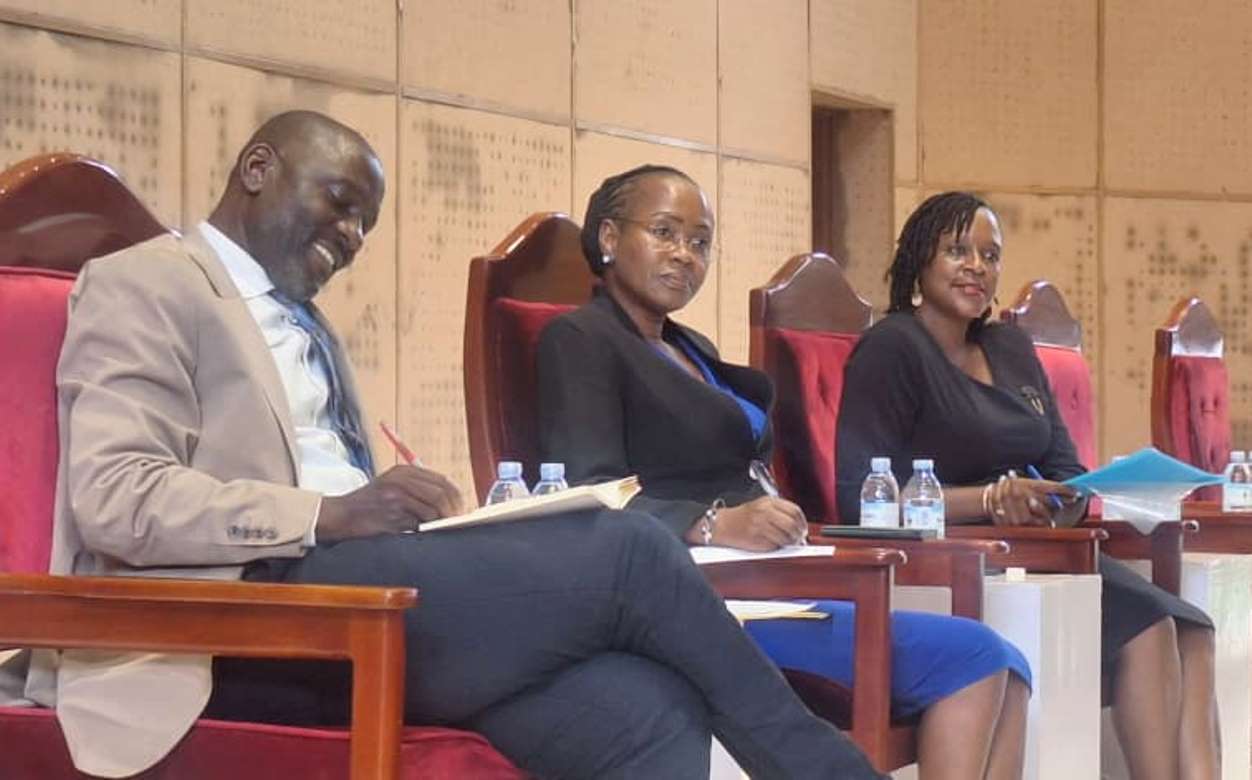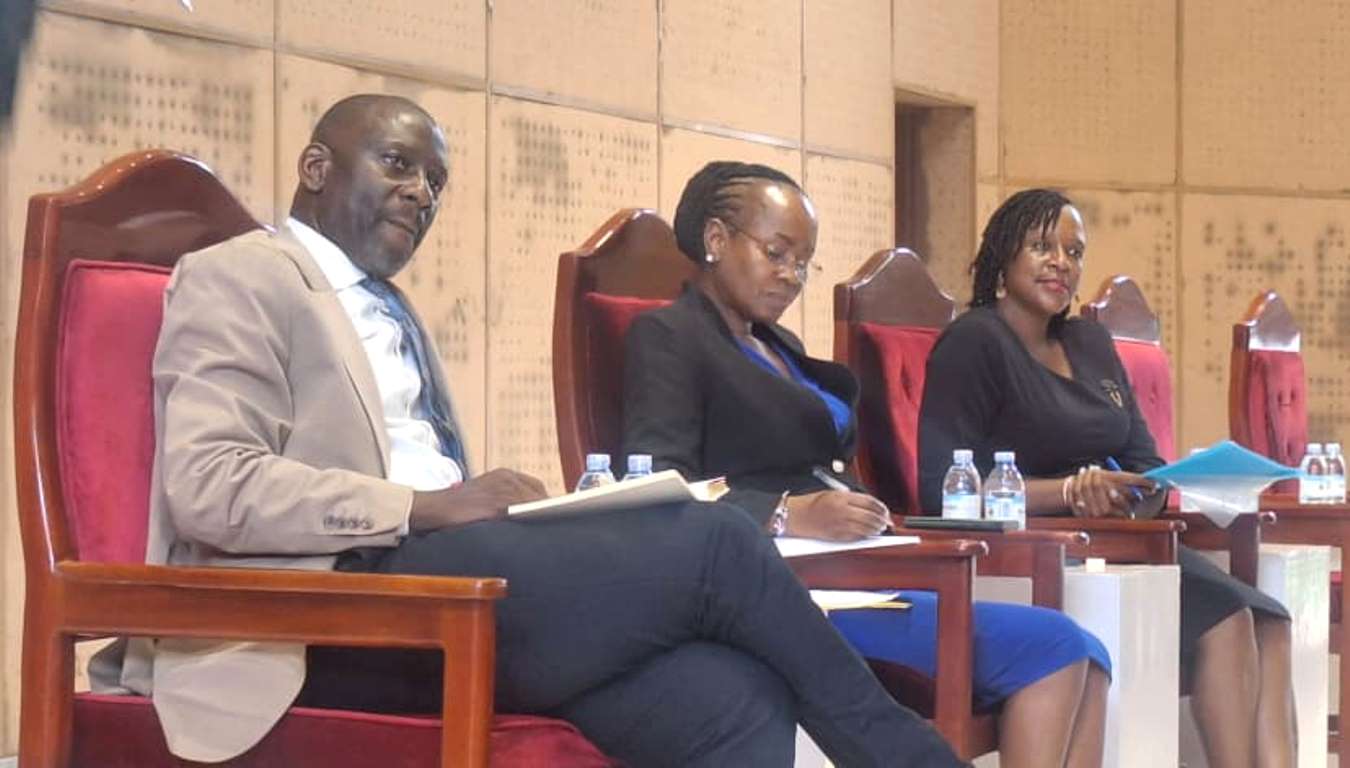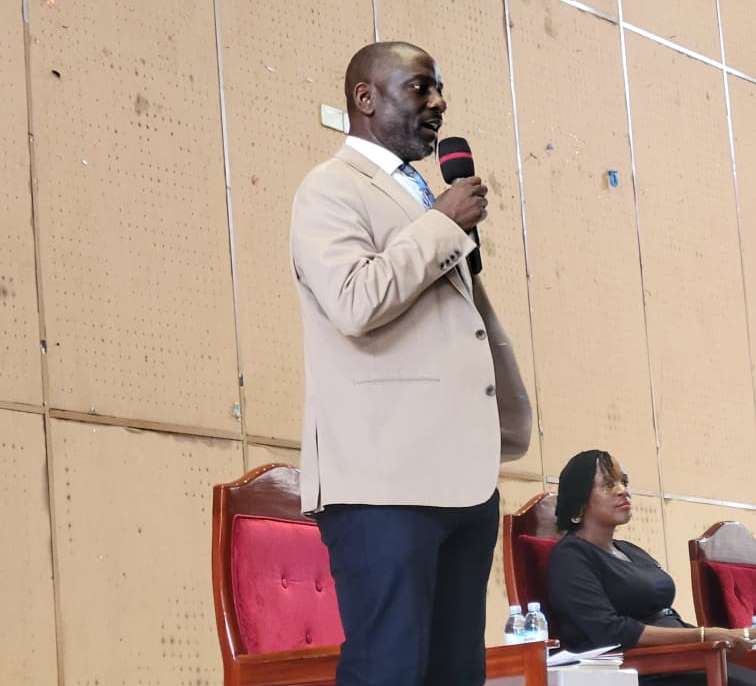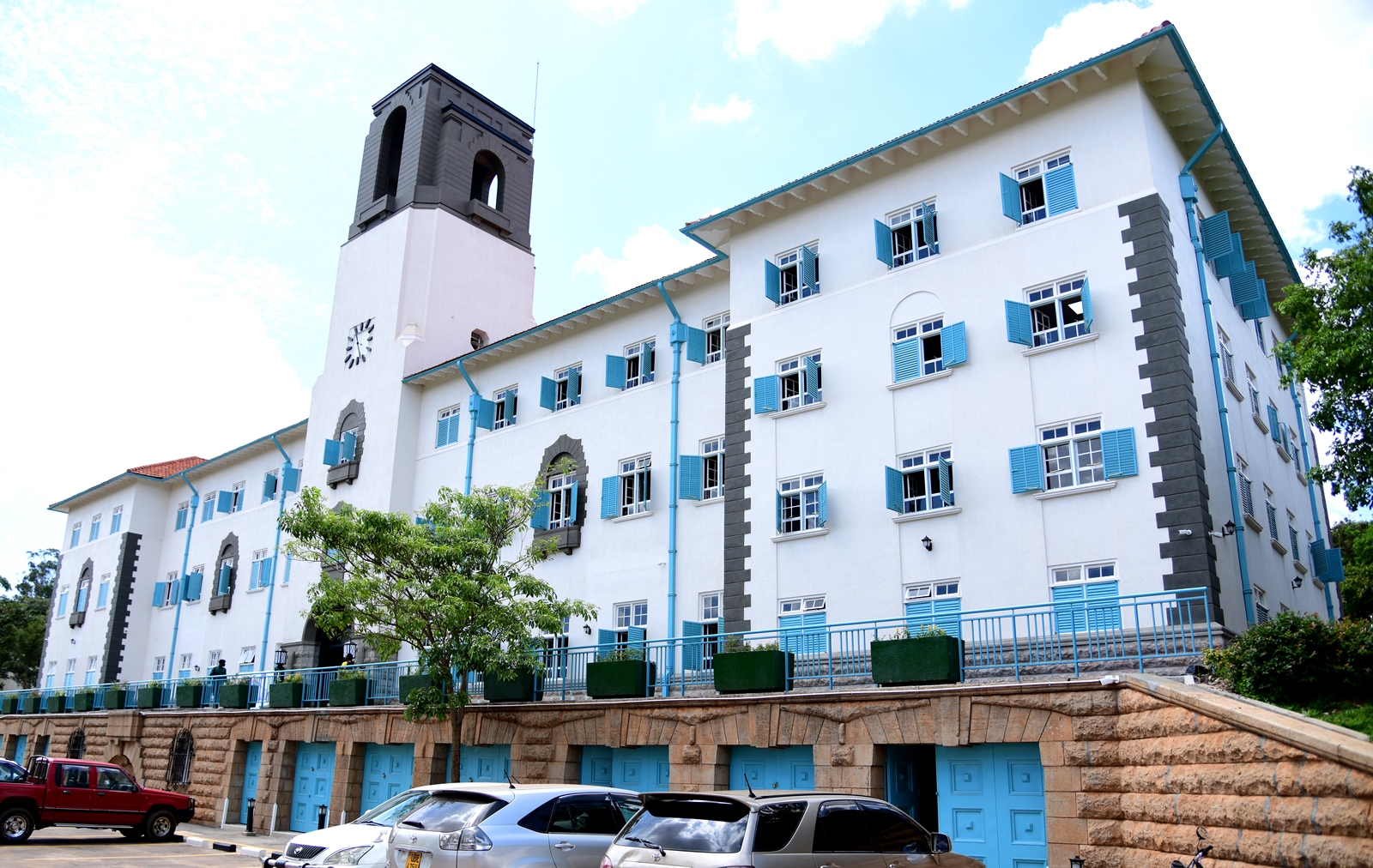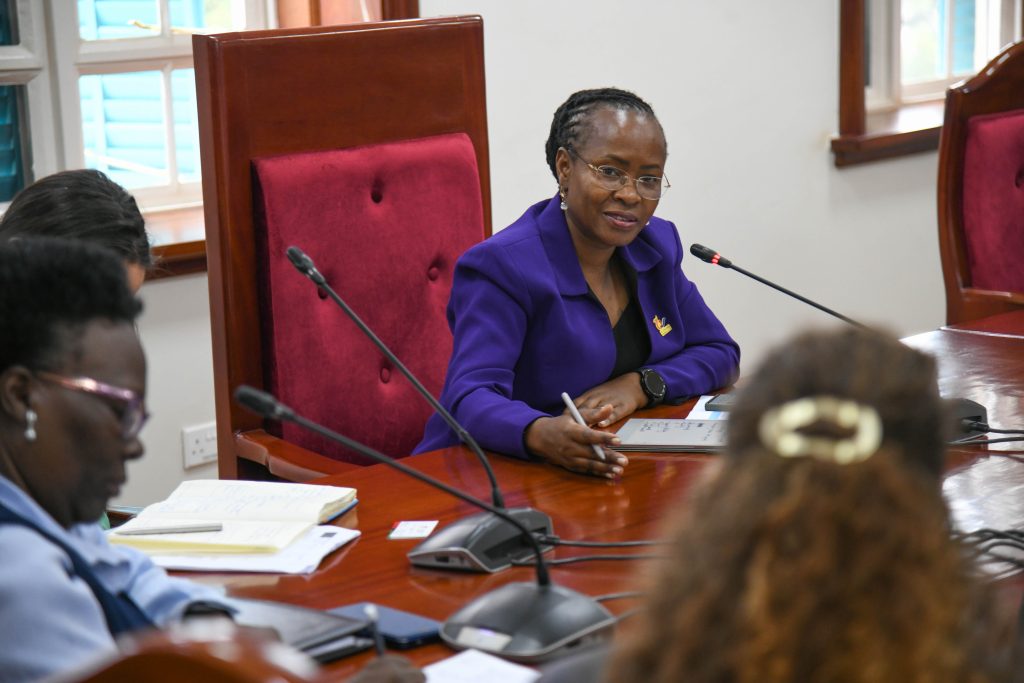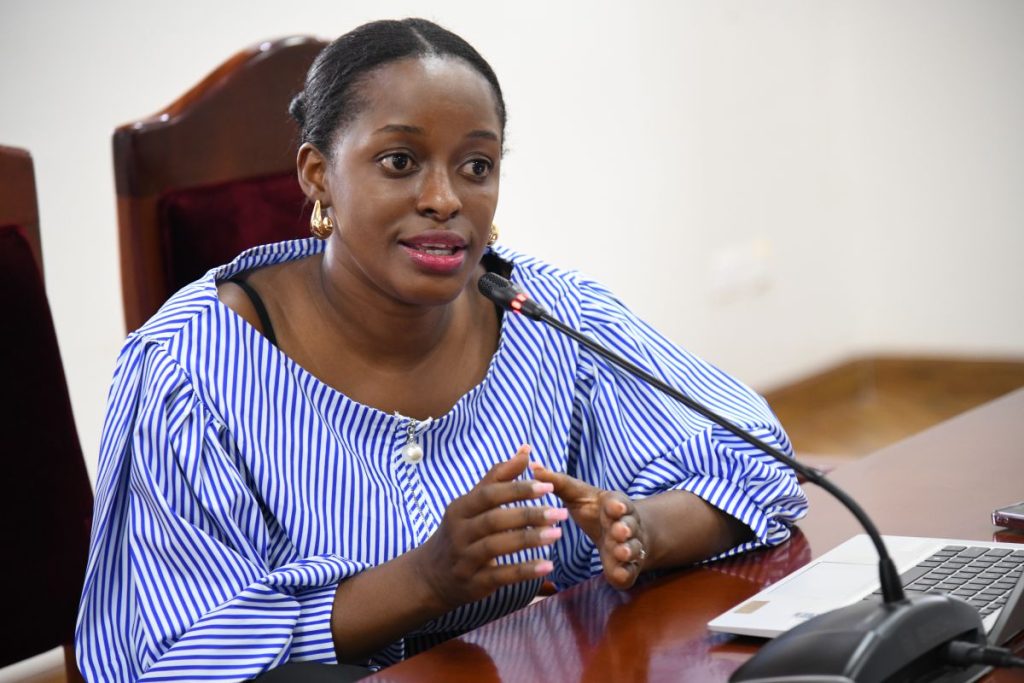On 26th February 2018, the Directorate of ICT Support (DICTS) at Makerere University organised a Social Media for Higher Education Workshop to sensitize staff and students on how they can utilise social media and other digital media platforms to champion the institution’s brand amongst its stakeholders around the world.
Officially opened by the Vice Chancellor of Makerere University Prof. Barnabas Nawangwe who was represented by the Director of DICTS Eng. Kitumba Frank, the workshop also focused on discussing the important ways of how Makerere University, can embrace the professional usage of social media tools to improve its online brand as well as harmonising social media as a learning tool.
During the interactive sessions, experts in social media management, communication, Public relations, digital marketing and digital PR and ICT intelligences from both government institutions and private sector, the researchers in academia shared ideas on how the staff and student can exploit their personal social media platforms to promote, protect and market Makerere University as a brand with the aim of increasing its visibility.
In a speech read by Eng. Kitumba, The Vice Chancellor appreciated the move by the Directorate of ICT Support (DICTS) to sensitize the University community on proper representation of Makerere University as a brand online. He urged staff and students to own the University reputation and promote its work in research, innovations and other developments wherever they are.
“Social media is increasingly becoming a key online marketing tool for institutions the world over, therefore we need to ensure that Makerere University is very vibrant on social media as we embark on the move to unlock its potential,” he said.

Social Media has evolved exponentially into a powerful social engagement, business intelligence and educational tool that should be embraced by all in this information driven age. Today, companies use social media for predictive data analytics whose findings can be used for business forecasting, improving business sales and retaining customers.
Higher education institutions the world over are equally embracing social media as a research marketing tool that is able to drive user traffic to their web-portals, improve their visibility and rank as well as market their research products to a wider audience.
“Social media tools are useful for gathering, collating, accessing, managing, sharing and disseminating your work and research findings. The effective use of social media tools can also enable you to manage your online presence, develop your reputation, maximize your impact and build networks,” Prof. Nawangwe mentioned.
According to the Director, DICTS Eng. Kitumba Frank, Makerere University joined the trend of using social media with the aim of promoting its brand, protecting its image and increasing the opportunities of reaching out to its stakeholders. To achieve this wonderful milestone, the institution has been able to harmonise the existing online platform and ICT tools together with social media platforms to easily reach out to its stakeholders.
Mr. Kitumba also revealed that the University is developing a tool that will increase the staff and students interactivity on Makerere University social platforms. He therefore encouraged them to be very vibrant online and ensure that they positively represent the great brand and legacy Makerere owns.
“We are ensuring that the institution moves with the trend. We have managed to harmonise the existing tools with the social media platforms to ensure increase our interaction with the users and also market our research, innovations and other developments in academics,” he said.

Samuel Paul Mugabi, the End-User Manager at DICTS said that Social media has evolved overtime and it is more than a casual linkup. According to him, the Makerere University has therefore recognized the changing trend and adopted the service delivery model where the IT Service Management has been streamlined to fit the social media trend and online interactivity among end users.
“We have improved the quality and consistency of the IT support experience for students, faculty and staff using various electronic touch points such as email, phones, CRM and Help-Desk tools. As the end user unit, we are in the process of repackaging data to fit our users’ interest and ensure that the message produced, effectively communicates across all the university platforms. We are working hand in hand with the Makerere University Public Relations Office to ensure that Makerere University maintains its relevancy through its digital platforms,” he explained.
Engaging the audience on the importance of institutional branding, the Brand and Marketing Officer of Makerere University Mr. Agaba Issa Magabo said that branding helps institution to attract Government support for institutional plans, to continue attracting partnerships from both local and international agencies and to maintain the confidence of alumni especially the would-be donors that their alma mater still “rocks”.
“If you are to attract local and international finances, you must behave in a certain unique, uniform and authentic way that will catch the funder’s eyes and then entrust you with his money. This means you need to have an authentic brand that is popular and respected,” he said.
He cautioned staff and students who misrepresent and misuse the university brand saying that it does not only affect the university as an institution but also tarnishes their names.“For many years Makerere University has been branded as an institution of strikes, this has strongly tarnished its image and reputation. The negative reports in the media have done more harm than good to the institution’s image and has inflicted a big damage on its market. But remember this is our institution, which needs our protection. Let us enjoy its legacy through building and maintaining its brand that it has held for centuries as we build for the future,” he said.

Reiterating the need to manage content when communicating a powerful brand, the Makerere University Senior Public Relations Officer Ms. Ritah Namisango urged students and staff to always make a background check on the content they post about the institution. According to her, relevant and valuable content will always attract, engage and drive the audiences to follow the institution’s work hence creating traffic on the platforms. She appealed to staff and students to always defend and protect the institution’s image when interacting with their personal social media platforms.
“Our actions should support our institution. We should represent Makerere University positively as a good brand. Change starts with YOU. Be the change that you want to see. Communicate responsibly especially on social media.” she stated.
In a presentation on ‘how the media has improved our professional call a case study of WhatsApp, Dr. Paul Birevu Muyinda, said that social media tools such as WhatsApp have potentials to provide cooperation, increase social interaction, interest and motivation, sense of belonging, academic success, student-student and student-teacher interaction. The tools also support learning anytime and anywhere, provide peer support, feedback, and allow for sharing of information in education.
He however, noted that despite their relevancy, many tutors have met challenges while using social media to reach out to their students. “Concerns towards privacy and security, losing attention, getting beyond the limits in personal relations, use of slang language, and negative effects on academic life arising from excessive use of social media have been cited while tutors try to reach out to students via social media,” he stated.

Mr. Mathias Ssemanda a Digital Marketing Specialist said digital Marketing varies greatly depending on institutions interests and values. According to him, higher education institutions are often caught in the crosshairs of upholding history and tradition and moving forward into the future with students. This makes it vital that their social media marketing efforts comprise part of a larger strategy focused on the overall institutional brand.
Ssemanda said that as social networks continue to advance and meld into aspects of everyday life, the academic world is determining the way in which these digital tools can work to educational advantage in correlation with conventional methods.
“The intended core of social media is communication, providing great opportunities for those within the education industry to connect, share and learn. Digital marketing builds and maintains the customer relationship through online activities. When well-managed, digital marketing can put the consumer in control, provides convenience, drives the brand loyalty, reduces the selling cycle and captures customers that are searching on the Internet for answers,” he said.
Taking the audience through social media threats, risks and security, the Director Cyber-Crime Unit in the Uganda Police Mr. Haguma Jimmy said many people have become victims of social media threats and crime in Uganda. According to Mr. Haguma, over the years the Uganda Police has registered several cases of cybercrime such as cyber rape, conmen online, destruction of relevant information by security threats, illegal hackers among others.

He therefore advised Ugandans to adopt the best social media practices and also familiarize themselves with the laws that govern social media in Uganda. “Many laws have been put in place to regulate the social media environment, take time and read them so that you know your position while using social media. Do not open any emails from untrusted sources. Do not give offers from strangers the benefit of the doubt. Lock your laptop/Phone whenever you are away. Purchase anti-virus software. Read your company’s privacy policy to understand under what circumstances you can or should let a stranger into the building. Set strong passwords,” Mr. Haguma said.
Article and photos by: Proscovia Nabatte, Mak-Public Relations Office


 Research1 week ago
Research1 week ago
 General1 week ago
General1 week ago
 Humanities & Social Sciences2 weeks ago
Humanities & Social Sciences2 weeks ago
 Health1 week ago
Health1 week ago
 General2 weeks ago
General2 weeks ago





